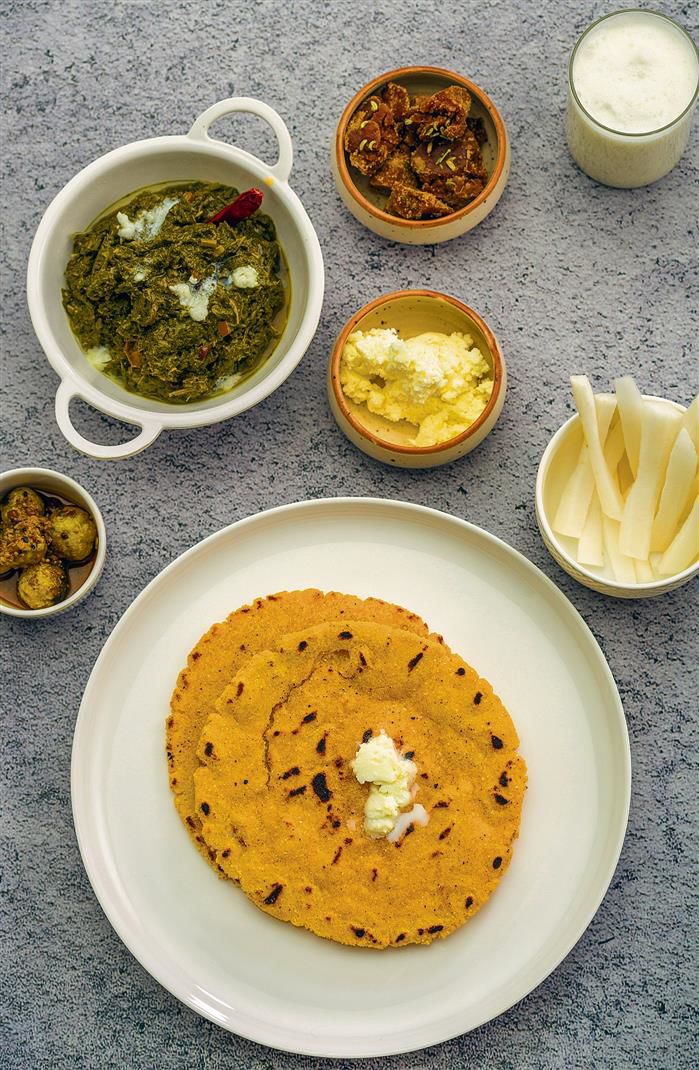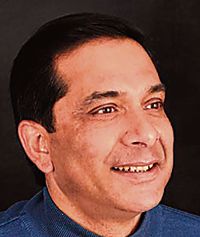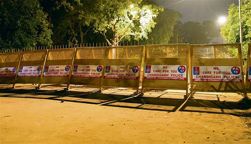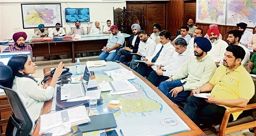
Raaja Bhasin
Travelling around, one has had good food, terrible food, excellent food and strange food. Also, ‘food’ that should not be called food. Years ago, when Hong Kong had just gone back to China, tired after travel, we searched high and we searched low for a vegetarian meal. None seemed to be forthcoming and we settled for bread and jam. At least that was available. That was a minor adventure. That was a far-off place. Let’s come closer home and to some other minor forays into uncharted gastronomic territory. Places that are relatively free of the ‘edible menace’. At a small dhaba in Spiti, one asked for thupka, which was something that one was familiar with and fond of. The soup was a generous dose of red chilli powder stirred in tepid water with an afterthought of noodles. At another time, in the village of Janjheli, tucked in the inner hills around Mandi, another dhaba offered meat in rajma. The thought of mutton cooked in kidney beans sounded deliciously exotic, but the result that arrived in a steel bowl was a disappointment — the flavour of both had been lost. This was no fusion, this was more like culinary fission.
Janjheli, home of that rare meal of rajma-meat, like other parts of the Mandi parliamentary constituency, is going to see a fair bit of activity in the coming weeks. There is another place in another district that also witnesses its share of action, and is one where election hopefuls go to seek blessings of the divine.
The temple of Baglamata lies near the little village of Bankhandi in the district of Kangra. It is nestled in a dip by an ancient peepal tree and the highway takes a long sweeping bend around it. Symbolic of the colour associated with the goddess, this is painted a bright yellow. Enshrined at various places around India, Baglamukhi is considered the eighth of the 10 Mahavidhyas, the ‘Great Goddesses of Wisdom’. In belief, she holds the cudgel that dispels and destroys a believer’s illusions — this great power can also destroy enmity. It is widely believed that Baglamata’s blessings bring victory in elections and without them, there is no mandate.
It was three decades ago in an old Ambassador car that a driver, who seemed to know every cow and goat in every village, took us to Bankhandi. My sister and I were taking what would perhaps be the last trip of just the two of us. After this, there would be spouses, children, the roll call of responsibility and a separation of several thousand miles. We would be lucky if we met once a year and talked about the weather and compared the noses and teeth of children who were now cousins; discussed whose jaw had originated with which grandfather. As we knew then, our parents would soon be gone and the bonds of the time when we were inseparable could loosen. We knew and did not speak of it, but this trip was to be the last chapter of what remained of childhood.
We rattled past the earth and stone walls covered with bright bracts of bougainvillea; we walked by banyans that proclaimed sacred domains. Karam Singh, the driver, had worked everything out for us; we were friends now. Ten days of companionship had taken care of that. He was the older one and he decided whom we would meet and where we would eat. Apart from a brief and passing delusion, one has had no plans of entering politics. Going to the temple of Baglamata was simply for darshan and lunch at this temple, that lies on the road between the village of Dehra and the town of Dharamsala.
In belief, Baglamata, the goddess at Bankhandi, is a Vaishnavi who shuns meat and animal sacrifices. We had been to the main temple and to the smaller one that enshrined a large Shivalinga. By the side is the temple’s bhandara or storeroom. Smoke was wafting out of the windows and in the darkened haze of the room, a wood fire burned. We took our shoes off outside and were given our places on low wooden stools. Partly squatting and partly sitting, we watched in silence as the fresh corn flour was kneaded and the ball flattened by hand to make a small roti, which was then whirled into position to join the other half a dozen over the large griddle. The meal was eaten in concentrated silence, with just the crackle of the fire and the occasional clatter of clang of a dish. Before and since, I’ve never seen or tasted makki rotis that have been whiter or sweeter. The corn had been ground slowly in a watermill and every fragment of flavour had been extracted and preserved; the corn, too, had come from the fields that belonged to the temple and had been sun-dried. For measure, a large steel bowl with white butter stood by for hefty dollops over the rotis. With this was the saag, leaves of the mustard plant that had been painstakingly cooked over a slow fire and then ground to a fine consistency. The meal ended with a glass of lassi.
At home, we have eaten the last of the season’s makki ki roti and sarson ka saag and another little memory has been triggered by a morsel of food.
Join Whatsapp Channel of The Tribune for latest updates.

























